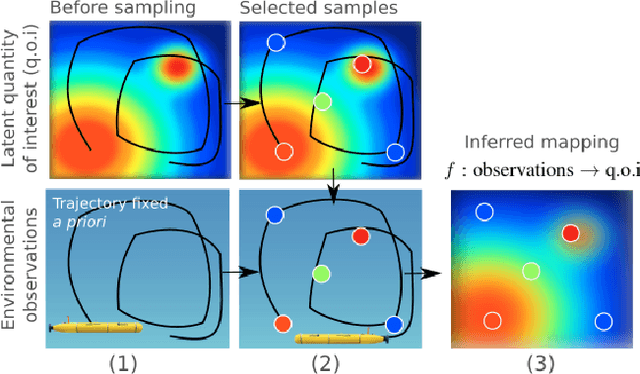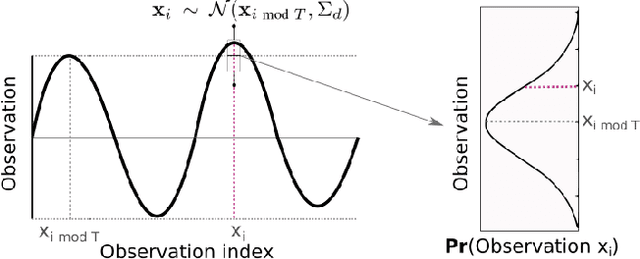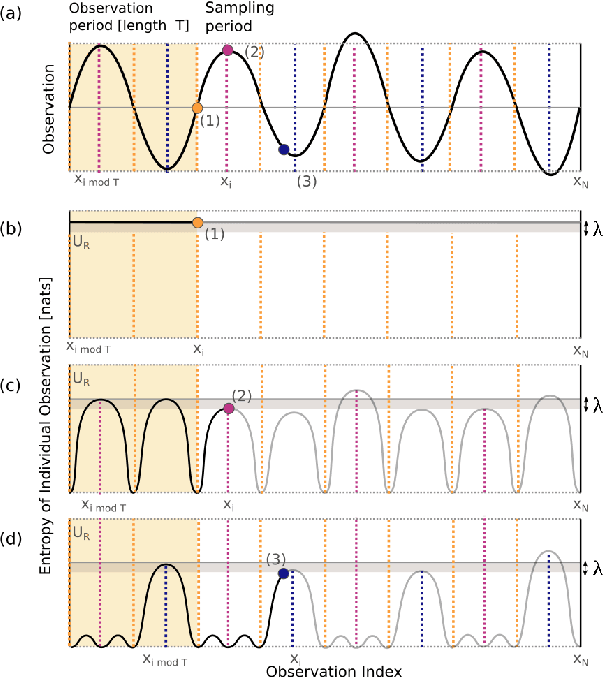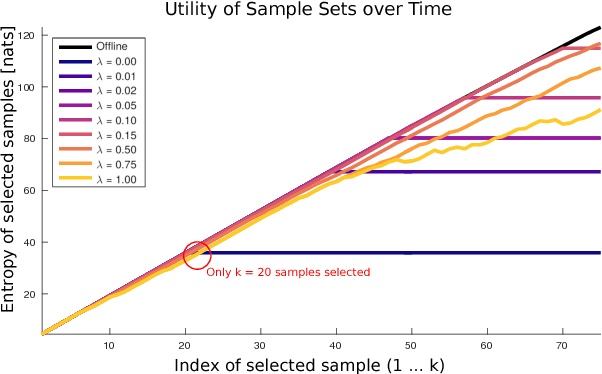Near-optimal irrevocable sample selection for periodic data streams with applications to marine robotics
Paper and Code
Jan 21, 2018



We consider the task of monitoring spatiotemporal phenomena in real-time by deploying limited sampling resources at locations of interest irrevocably and without knowledge of future observations. This task can be modeled as an instance of the classical secretary problem. Although this problem has been studied extensively in theoretical domains, existing algorithms require that data arrive in random order to provide performance guarantees. These algorithms will perform arbitrarily poorly on data streams such as those encountered in robotics and environmental monitoring domains, which tend to have spatiotemporal structure. We focus on the problem of selecting representative samples from phenomena with periodic structure and introduce a novel sample selection algorithm that recovers a near-optimal sample set according to any monotone submodular utility function. We evaluate our algorithm on a seven-year environmental dataset collected at the Martha's Vineyard Coastal Observatory and show that it selects phytoplankton sample locations that are nearly optimal in an information-theoretic sense for predicting phytoplankton concentrations in locations that were not directly sampled. The proposed periodic secretary algorithm can be used with theoretical performance guarantees in many real-time sensing and robotics applications for streaming, irrevocable sample selection from periodic data streams.
 Add to Chrome
Add to Chrome Add to Firefox
Add to Firefox Add to Edge
Add to Edge